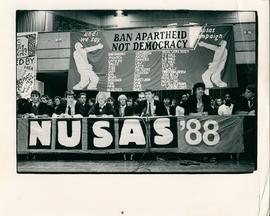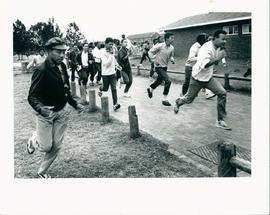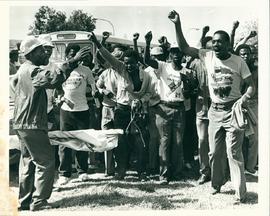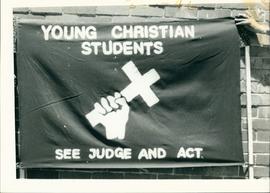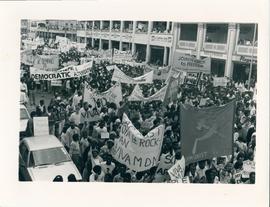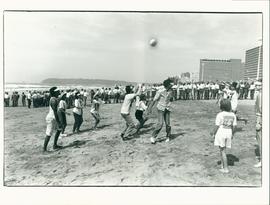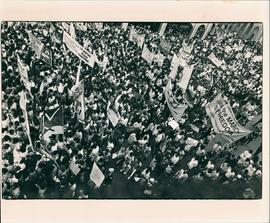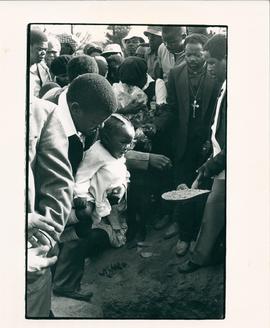Identity area
Reference code
Title
Date(s)
- 1970-2002 (Creation)
Level of description
Fonds
Extent and medium
35 boxes
Context area
Name of creator
Administrative history
The YCS was an international movement, which embraced Christian values of love, justice and peace. It was an ecumenical Christian student movement operating in parishes, schools, seminaries, universities and other higher education institutions. It had its origins in the Belgium Catholic Church at the beginning of the twentieth century.
The YCS was started in South Africa in 1959, initially as a parish for younger school goers who were members of the Young Christian Workers. The main aim of the YCS at this time was to ‘Christianise’ the schools and universities. From 1965, it also began to focus on high schools. Its activities were centred around get-togethers, rallies and groups who looked critically at youth culture and education. Actions focused on: charity, parish work, and challenging values at schools.
In the mid 1970’s the YCS became an independent non-racial movement in South Africa. It united the students who are found in high schools, universities, churches, seminaries and other tertiary institutions. YCS was involved alongside the Congress of South African Students (COSAS) in helping to set up democratic structures for representation in schools by mobilising Christian students to support demands for an Student Representative Council and for free and equal education.
In the 1980’s the YCS ion became actively involved in the national liberation struggle by working with workers and participating with other emerging progressive organisations in student and community campaigns such as school boycotts or strikes. In 1985 YCS delegates to the South African National Youth Council participated in the International Youth Year under the banner of “Participation, Justice and Peace”. During 1987-1988 the movement extended rapidly in tertiary institutions and initiated the first national campaign that aimed at making a broad impact of prophetic theology on Christians.
The YCS committed itself to: the poor, liberation and non-racialism. The movement used the See-Judge-Act (Action-Reflection-Action) method to do social analysis aimed at addressing the needs and interests of the poor and to practice their pedagogy.
Its meetings were organised and run in small groups, regional teams (in the provinces) and national teams. The YCS National Council was held annually and regional delegates drew up programmes of action for the following year. It also elected the National Team, which was responsible for implementing its goals.
Archival history
Immediate source of acquisition or transfer
The collection was deposited in the Historical Papers Research Archive in 2011 by Mike Deeb.
Content and structure area
Scope and content
The collection of the Young Christian Students (YCS) includes records relating to reports, minutes of the meetings, documents on projects, workshops, conferences, publications, posters, correspondence, educational material on of higher education transformation, the 1994 elections, international Christian students organisations and other South African youth organisations cooperating with the YCS.
Appraisal, destruction and scheduling
Accruals
System of arrangement
Conditions of access and use area
Conditions governing access
Conditions governing reproduction
Language of material
Script of material
Language and script notes
Physical characteristics and technical requirements
Finding aids
Uploaded finding aid
Allied materials area
Existence and location of originals
Existence and location of copies
Related units of description
Notes area
Alternative identifier(s)
Access points
Subject access points
Place access points
Name access points
Genre access points
Description control area
Description identifier
Institution identifier
Rules and/or conventions used
Status
Level of detail
Dates of creation revision deletion
2019


